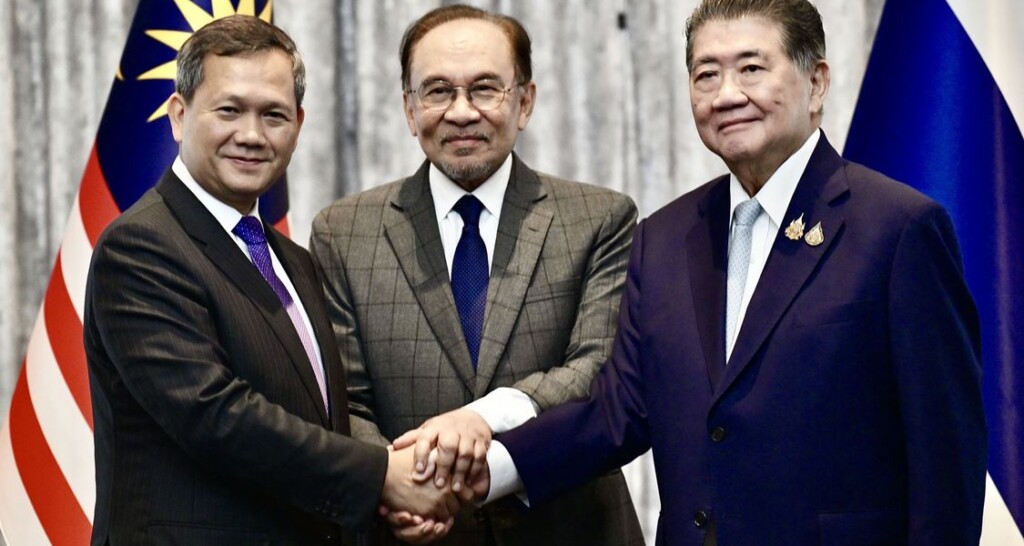
Cambodia and Thailand have signed an immediate and unconditional ceasefire on July 28th following an eruption in military skirmishes along a disputed border.
Though tensions remain high and Thai authorities accused Cambodian forces of violating the ceasefire within hours of its initiation, the frontline remains quiet as July comes to an end.
With three major regional wars already stretching across multiple years without obvious conclusions to be seen in any case, it was vital that a prolonged conflict in Southeast Asia did not break out.
Cambodian Prime Minister Hun Manet and Thai Acting Prime Minister Phumtham Wechayachai met in Malaysia to organize a halt to the fighting, with a Malaysian foreign policy team acting as mediators of the deal. The agreement took effect at midnight and was announced by Malaysian PM Anwar Ibrahim.
Manet said it was an opportunity for a sustained peace, and that it was “time to start rebuilding trust, confidence and cooperation going forward between Thailand and Cambodia.”
Artillery fire broke out between the two nations after a landmine explosion injured 5 Thai soldiers along the disputed border in north-northwest Thailand, and southern Cambodia. The International Court of Justice has ruled in favor of Cambodia’s claim to several units across the largely-rural area, but Thailand continues to argue that the claim is based on French colonial maps that have no basis being referred to in a post-colonial world.
Dozens of mostly military personnel on both sides were killed, but AP reports that the Trump Administration, which had been undergoing trade negotiations on both sides in regards to the new US tariff policy, warned that Washington would back out of any talks if a ceasefire was not agreed to.
Thailand and Cambodia, at the moment, stand to receive large tariff rates on exports to the US if no agreement can be reached, and the threat gave both nations a face-saving motif for abandoning the warpath.
Secretary of State Marco Rubio, who was involved in arranging the meeting, applauded the ceasefire declaration while adding he expects the governments of Cambodia and Thailand “to fully honor their commitments to end this conflict.”
ANOTHER RECENT CONFLICT ENDED: The Last Contested Border in Central Asia Celebrates Peace After Years-Long Conflict
The rapid ceasefire agreement, reached without demands or concessions, embodies the principles espoused by the Association of Southeast Asian Nations (ASEAN), a 10-member international bloc which both belligerents belong to. The economic, security, and development partnership prides itself on cooperation and non-aggression.
Many of the 300,000 estimated civilians displaced during the fighting, who had taken up refuge in schools, temples, makeshift encampments, and other public areas, have begun to return to their homes.
CELEBRATE The Triumph Of Peace And Reason Over Bitterness And Conflict…
